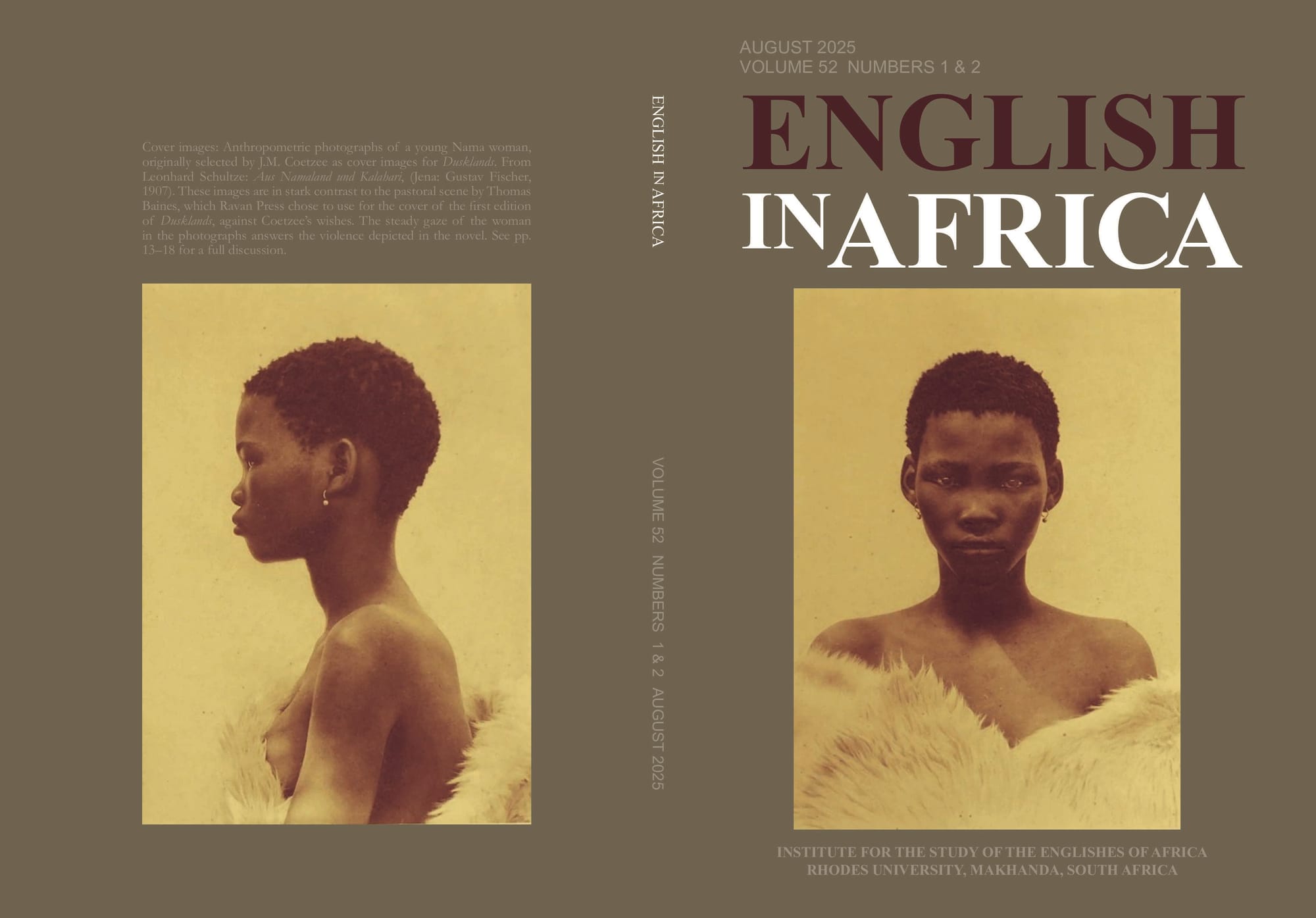Coetzee and his man: Re-examining form and meaning in Dusklands

English In Africa, Vol 52 (No. 1 & 2), October 1, 2025, 65-83.
This essay explores the political implications of the form of J.M. Coetzee’s first novel, Dusklands (1974). I contend that this novel marks a new turn in the history of the English novel, and its many corollaries are pertinent for contemporary debates on politics and literature. Thus, the purpose of this exploration is to show that the formal innovation in Coetzee’s fiction is not reducible to apolitical literary experimentation, but it was developed with singular attention to the political situation of the postcolonial world. This essay puts the first section of the novel, “The Vietnam Project,” in a conversation with Coetzee’s satirical writing on the Vietnam War published in a student newspaper at University of Texas at Austin, and his PhD dissertation on stylostatistics, to show how the formal innovations in Coetzee’s work are not only consistent with political opposition to imperialism but are essential for dismantling the regime of representation that sustains it.